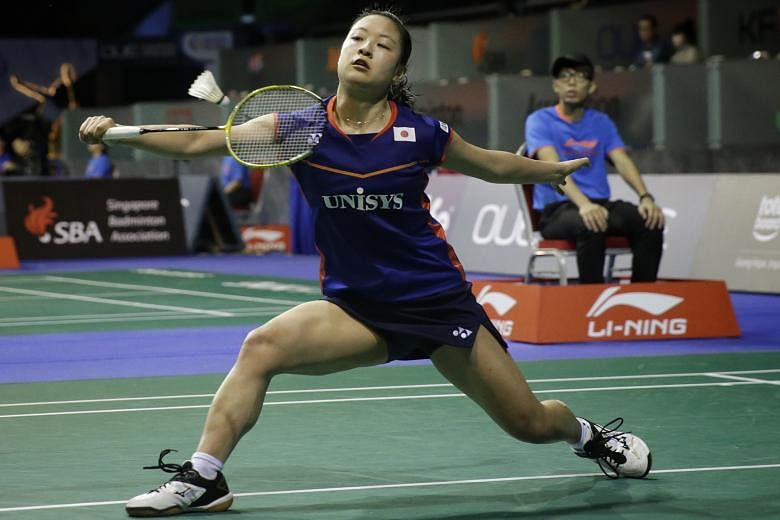In the past two years, Japan has emerged as the latest country most likely to end China's dominance in badminton.
Yet, its national head coach Park Joo Bong has preached patience, insisting that it will still take another four years for his charges to catch up with their rivals.
Said the South Korean: "At the moment, our level is higher than it has ever been before. Of course we are going higher, but right now, China is still at the top in the world."
Nevertheless, Japanese players have steadily chipped away at China's stranglehold on the sport, led by a new generation of stars including men's and women's singles stars Kento Momota and Nozomi Okuhara, as well as women's doubles No. 1 duo Ayaka Takahashi and Misaki Matsutomo.
The men's team lifted their first Thomas Cup in 2014, while both Momota and Okuhara clinched the season-ending Superseries Finals last year. Last month, Okuhara also captured Japan's first All-England title since 1978.
Yet Park felt that, in terms of talent depth, Japan still fall behind China, who have three players in both the top 10 of men's and women's singles, four pairs in mixed doubles, two in men's doubles and three in women's doubles.
"In each category, we have only one (doubles pair or singles player) that can fight with the Chinese. The rest are far behind. China have many players of the same high standards," he said.
Still, he has been widely credited for Japan's recent success and rise.
Park joined the team over a decade ago, carrying an impressive CV from his playing years as a doubles specialist. His credentials included an Olympic gold in 1992, as well as nine All-England titles from 1985 to 1996.
He recalled: "In the beginning, they respect me and listened to what I said. I knew the players were good in skills, power and speed, but they didn't know how to use them. No tactics, they didn't know how to play, and their winning mentality is not strong."
Park sought to fix that mental frailty and throw out their mindset of putting rankings above results and silverware.
He said: "Last time, their mentality going into tournaments is to just participate and collect points. It doesn't matter if they don't win it.
"To them, the world ranking is more important. But to me, it is not important. They need to improve, to be stronger first."
He noted that at the 2004 Athens Olympics, only one out of 13 Japanese players won a match.
"They may be ranked high, but it's because they get points from small tournaments. When they go to big tournaments, they lose easily," he explained.
Asked what was the biggest improvement, Takahashi pointed out their new-found belief to win: "Everyone of us has the desire to win, to be a world champion."
That fearlessness was evident when 1.56m-tall Akane Yamaguchi upset then-world No. 1 Carolina Marin at the OUE Singapore Open last Friday, and said afterwards she can "keep running and chasing down every shot".
Still, Park is worried over a lack of consistency ahead of the Olympics. For instance, Okuhara failed to back up her All-England triumph and floundered with early exits in Malaysia and Singapore.
This is why he is targeting only two medals - one better than in 2012, when Mizuki Fujii and Reika Kakiiwa became Japan's first-ever Olympic badminton medallists with a women's doubles silver.
Said Park: "The whole world is watching you at the Olympics, it is totally different from a Superseries Final. Most of my players will be taking part for the first time, so that's my worry for them."
Nevertheless, the Japanese shuttlers have made so much progress that the only headaches they could be confronting in the future are from themselves.
Said Keigo Sonoda, part of the second-highest ranked men's doubles pair: "Japanese representation is increasing, therefore the consciousness to practise harder is greater. That's making us stronger."
Alvin Chia

